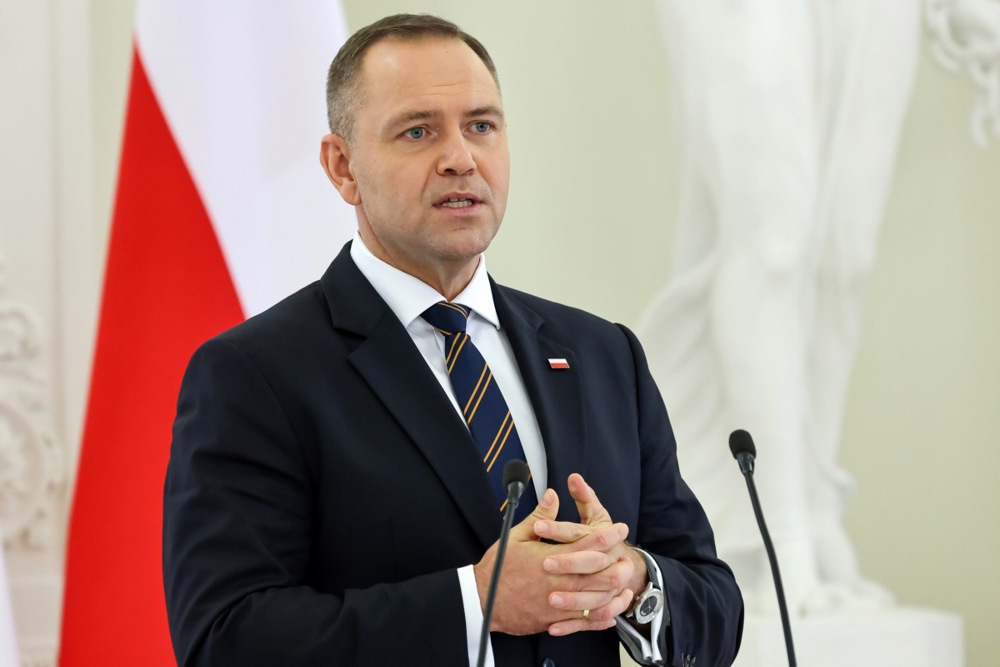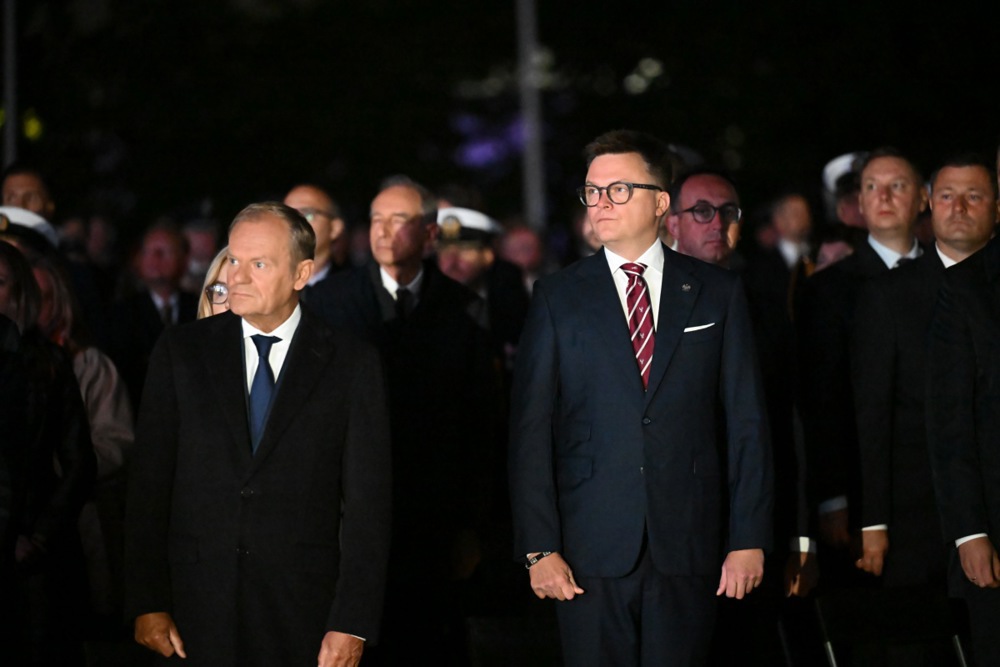Poland’s President Karol Nawrocki has submitted a request to the Constitutional Court (TK) for the delegalisation of the Communist Party of Poland (KPP).
Under Poland’s Constitution only the Constitutional Court may take a decision to ban any particular party.
According to legislation on political parties, if the Constitutional Court finds that the objectives or activities of a political party are inconsistent with the Constitution, the court will immediately issue a decision to remove the political party from the register.
The case for banning the Communist party in Poland rests on the legislation that makes the propagation of totalitarian ideologies such as Communism and fascism with a view to overthrowing the existing democratic system of government illegal.
The opposition Conservatives (PiS)-aligned President’ s submission, signed by him on November 6, argues that the KPP, which was formally registered as a political party in 2002 and has not stood in any elections, is active only in Silesia in southern Poland.
It adds that it has fewer than 100 members and violates the Constitution by promoting elements of the Communist system that ruled the country from 1945 to 1989.
Both the KPP’s objectives and activities, the submission maintains, include “totalitarian methods and practices of Communism” and “assume the use of violence to gain power and influence on state policy”.
The President’s submission also alleges that the party uses the symbol of the hammer and sickle, which is banned along with the use of Nazi symbols such as the swastika.
In 2020, Zbigniew Ziobro the justice minister in the last PiS government, filed a similar petition with the Constitutional Court. Its hearing in October of this year, though, was adjourned indefinitely due to the ex-minister’s failure to attend.
The KPP’s defence to the charges submitted by Ziobro was that the party did not believe the previous system in Poland was “real” Communism as it lacked democracy, adding that some parts of the previous system were beneficial.
“The entire argument refers only to historical considerations and attempts to blame the contemporary KPP for all the errors of the previous system which was not communism, but an attempt to introduce socialism, the positive side of which was social reforms,” the KPP stated.
Reacting to Nawrocki’s move the KPP’s leader Krzysztof Szweja said: “The President has granted us free publicity,” adding that “since the government does not recognise the present Constitutional Court their ruling will not have the force of law.
“This case will run and run,” Szweja concluded.
He was referring to the fact that the composition of the TK is currently disputed as the government alleges that three of the members of the court were elected illegitimately during the time of the previous PiS government.
It further alleges that the centre-left government led by Prime Minister Donald Tusk has decided not to publish the rulings being made by the court.
The Communist Party was illegal in the interwar period in Poland and its leadership was purged by Joseph Stalin, former prime minister of the Soviet Union in the 1930s.
In 1942, during the period in which Poland was occupied by Nazi Germany and the USSR , the Polish Workers Party (PPR) was formed on the initiative of Soviet Communists. It became one of the dominant forces in the government the Soviets installed in Poland as the war neared its end in 1944.
The PPR allied with the Polish Socialist Party (PPS), which after the war was infiltrated by Communist agents leading to the two parties merging in the late 1940s into the Polish United Workers Party (PZPR).
With Soviet backing, it ruled Poland until 1989 and was guaranteed the status of the ruling party by the constitution of the Soviet allied Polish People’s Republic (PRL).
It took until 2023 for the Left to again be involved in government, with the Left party becoming the smallest part of current Prime Minister Donald Tusk’s ruling coalition.
The Left has since split again as those who had been in the old post-Communist SLD remained in Tusk’s coalition but the smaller Together party left the ruling camp over disagreements on social and economic policy.





